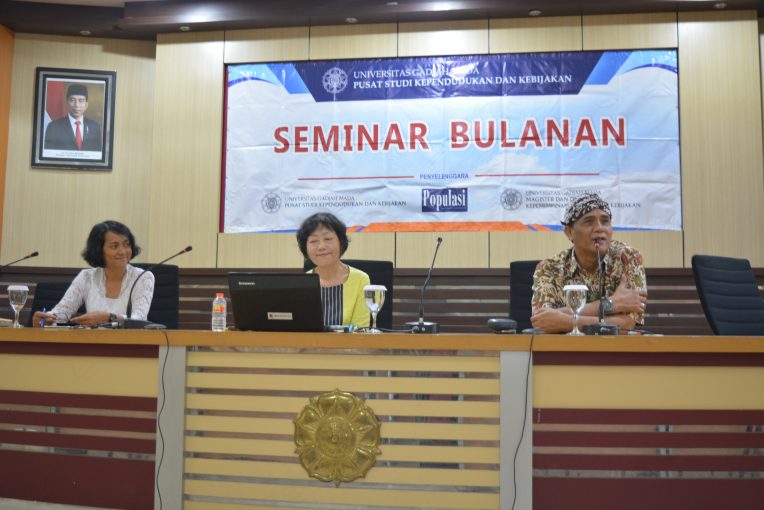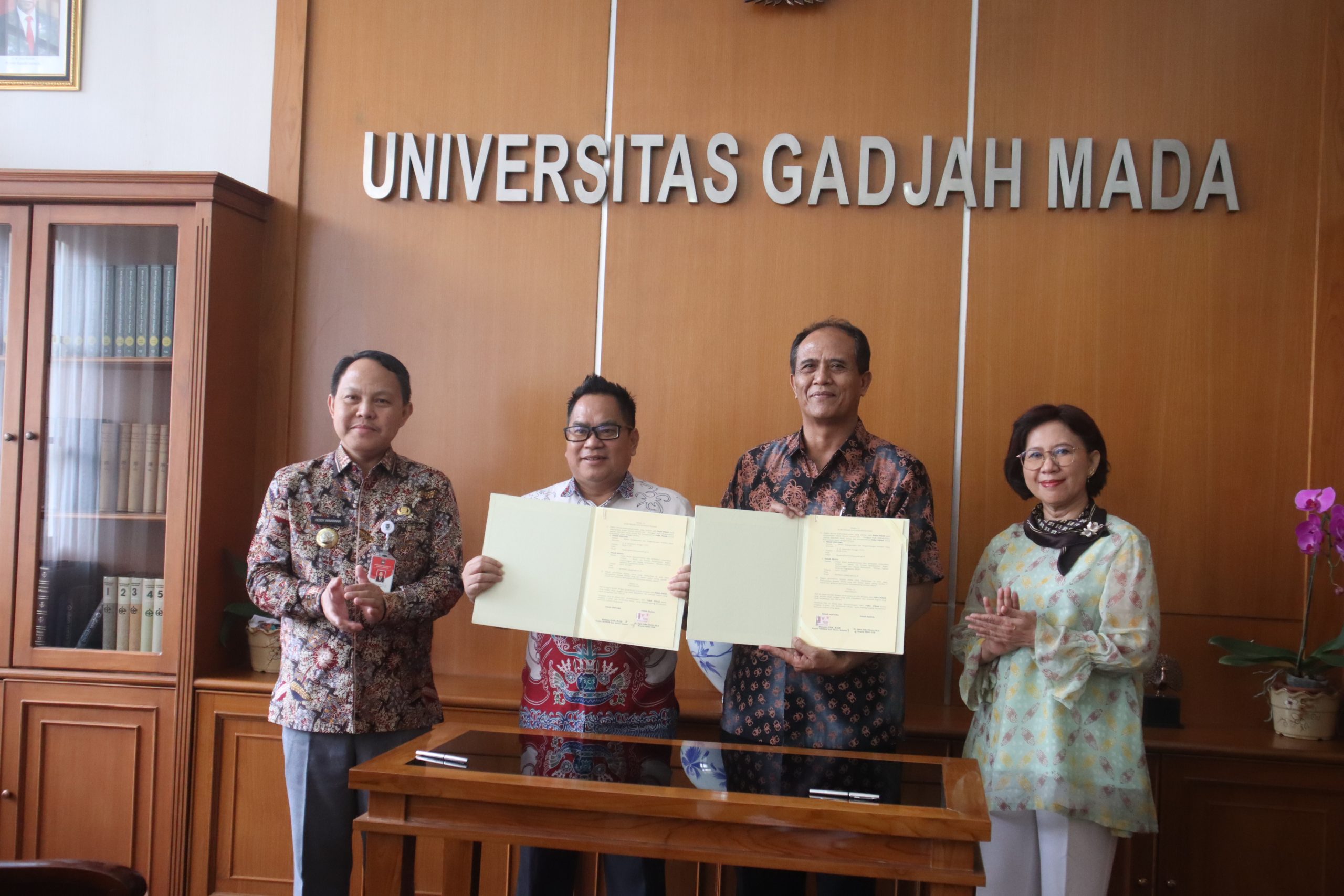
CPPS UGM held a seminar on “Impact of Reproductive Health Policies on Woman’s Health: MDGs and BPJS” on Thursday, November 28, 2019 at Prof. Auditorium Dr. Agus Dwiyanto, CPPS UGM.
Prof. Dr. Etsuko Matsuoka, a researcher from Nara Woman University Japan, was lined up as the speaker and presented several things related to cultural changes in delivery process as well as the role of midwives in the field of reproductive health in Indonesia.
She explained that there were many births assisted by a medicaster called dukun bayi in the middle 1990s. As time and technology went by, the mothers began to deliver her baby with the help of midwives. Subsequently, many midwives began to have their own labor practice called Praktik Bidan Mandiri (BPM).
When Millennium Development Goals (MDGs) targets related to the strategy for reducing child mortality and improving maternal health was issued, midwives have received special training to provide services for ideal delivery. Apart from the noted developments, according to Matsuoka, the reality shows that many midwives refer the pregnant women to give birth in a hospital.
Data obtained from Sadewa Hospital Yogyakarta (2014), for example, shows that 54 percent of pregnant women give birth by cesarean section (c-section) and 40 percent of the pregnant women who give birth in the hospital are referred by midwives. This proves that the pregnant women prefer giving birth in hospitals to BPM.
Regarding the delivery process in hospital, Matsuoka explained that BPJS insurance only finance around 700 thousand rupiahs. The amount is insufficient to finance the needs of delivery, especially if this is performed by c-section.
On the other hand, BPM also does not have an MoU with BPJS. The BPM must work closely with doctors who open independent practices.
“The question is, is the midwife gaining power or losing power? and has the strategy to achieve MDGs 5 and BPJS been successful in improving women’s reproductive health?” Matsuoka asked, which is then continued with the question-answer session and open discussion with the participants.




